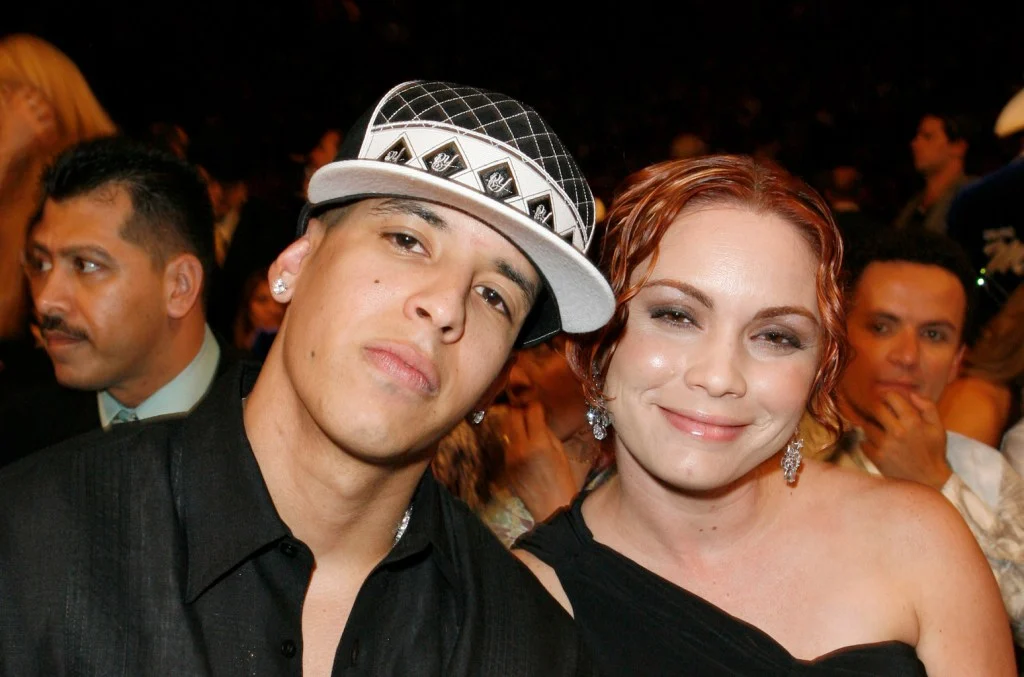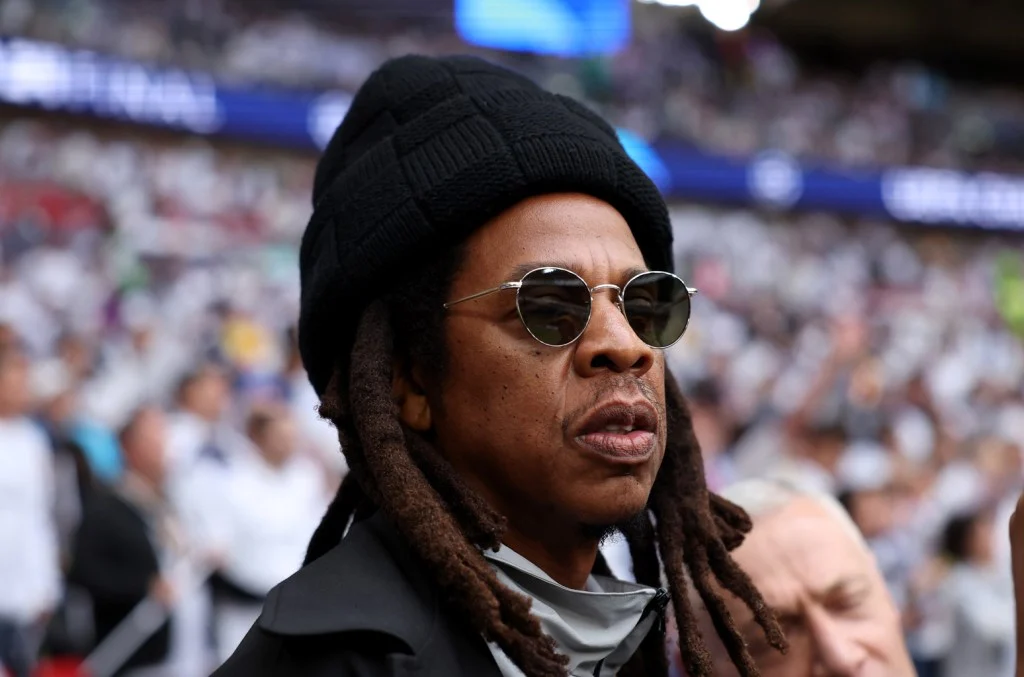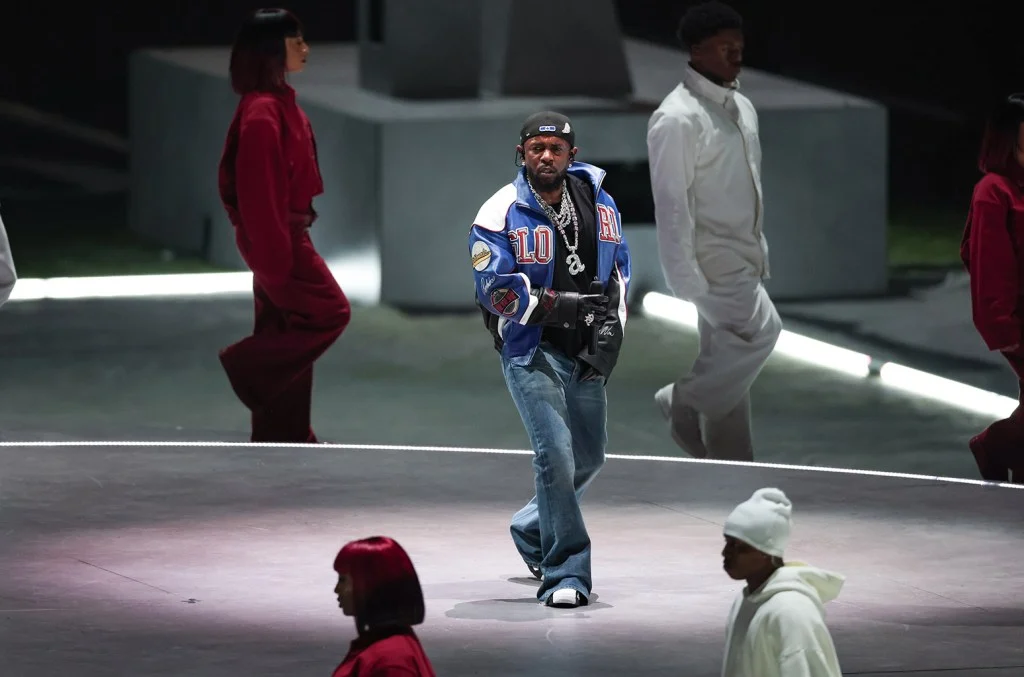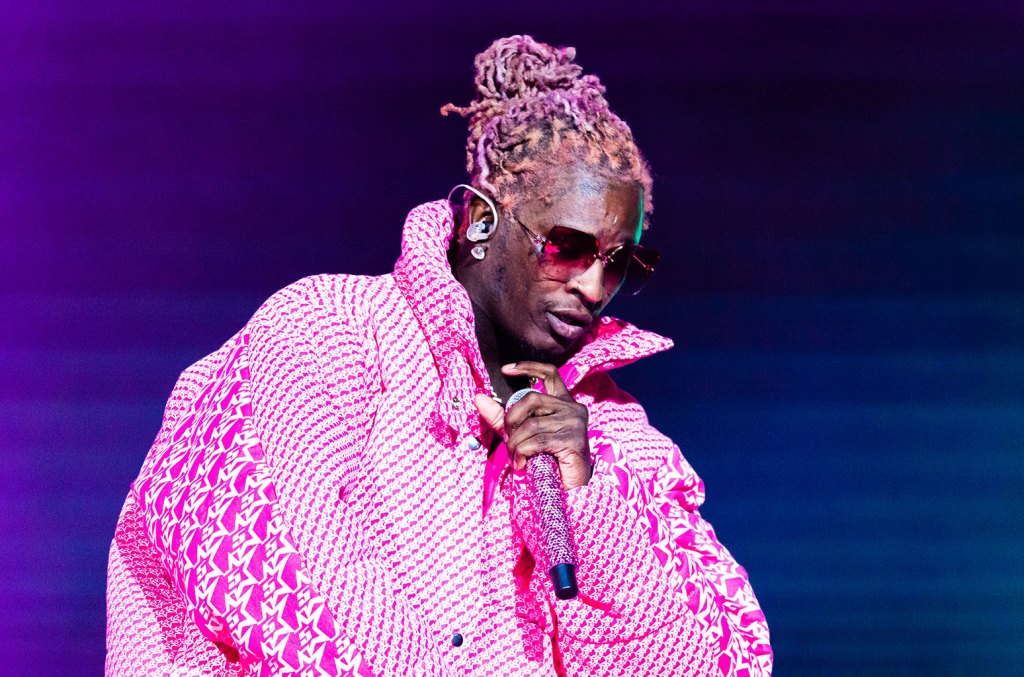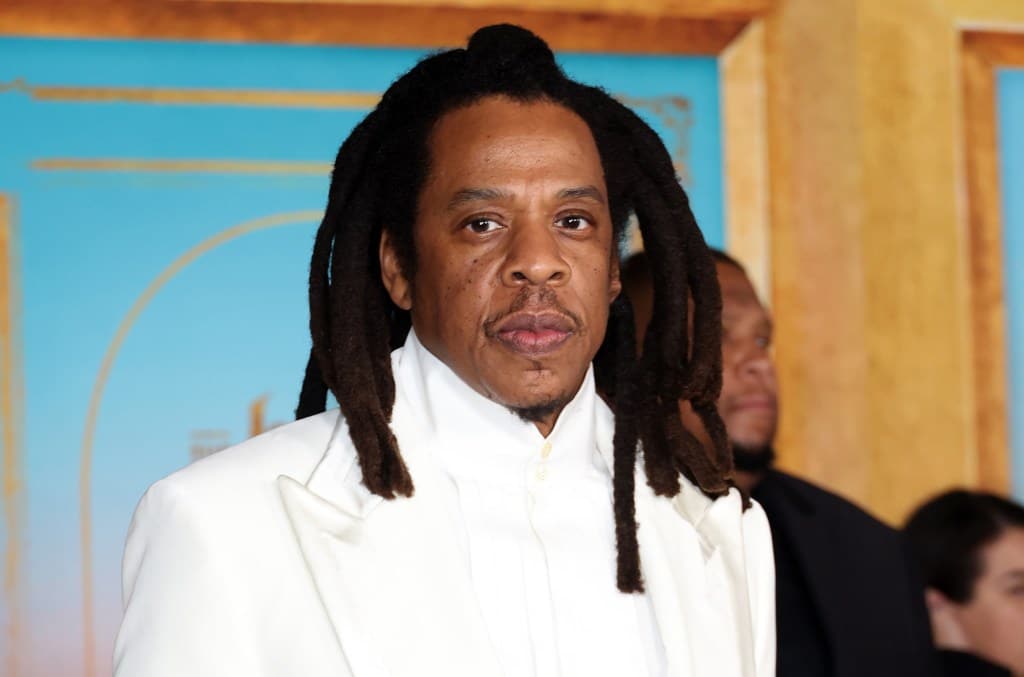Legal
Page: 31
Reggaetón icon Daddy Yankee filed a massive lawsuit on Tuesday (March 4) against his ex-wife, Mireddys González Castellanos, and her sister, Ayeicha González Castellanos, for financial mismanagement, defamation, irregularities and negligence in the management of his music companies El Cartel Records and Los Cangris.
The 23-page lawsuit, filed in the Tribunal de Primera Instancia in Carolina, Puerto Rico, amounts to $250 million and accuses the sisters of breach of fiduciary duties, breach of contract and more. According to the complaint, after Yankee regained control of the companies, his team discovered administrative and fiscal irregularities. One claim detailed in the lawsuit states that Yankee (Ramón Luis Ayala Rodríguez) found uncashed checks — some for royalty payments dating back to the early 2000s — that had expired because the defendants never deposited them.
“Due to this gross and stubborn negligence of the defendants’ administrative management, the plaintiffs lost thousands of dollars,” the lawsuit states.
Trending on Billboard
The lawsuit follows an injunction Yankee filed in December against his then-estranged wife, whom he officially divorced last month, claiming she had withdrawn $100 million from the companies’ bank accounts without authorization. According to that legal filing, the alleged theft of company funds occurred after Yankee had already revoked Mireddys and Ayeicha’s authority and “warned that they could not carry out any transactions on behalf of the companies.”
A few days later, both parties agreed that the Puerto Rican star would regain the presidency of El Cartel Records and Los Cangris, where his ex-wife allegedly served as CEO and her sister as secretary/treasurer.
Now, Yankee claims that after regaining control of the companies in December, his team discovered irregularities, including the “disappearance” of key documentation related to the companies’ finances and his successful La Última Vuelta World Tour. The lawsuit also alleges that between Dec. 26 and Dec. 30, just before the completion of the court-ordered administrative transition, the sisters “deleted or removed essential emails related to the operation of the companies and migrated the information to devices that have not been turned over or identified.”
Furthermore, Yankee alleges that the sisters’ “disorganized, unprofessional and irresponsible handling of matters related to Ayala Rodríguez’s career” and a “defamatory campaign promoted by the co-defendants and their agents and legal representatives with their endorsement” has caused him to lose income and damaged his “career, good name and personal prestige as one of the most important international Latin music figures.”
Billboard reached out to Mireddys González’s attorneys for comment but did not hear back at press time.
This is The Legal Beat, a weekly newsletter about music law from Billboard Pro, offering you a one-stop cheat sheet of big new cases, important rulings and all the fun stuff in between.
This week: Jay-Z goes on the legal offensive to clear his name of rape allegations, Drake’s lawyers cite Kendrick Lamar’s Super Bowl show in legal filings, Cardi B wins a re-payment plan from a bankrupt gossip blogger and much more.
THE BIG STORY: Jay-Z Strikes Back
When an unnamed woman accused Jay-Z in December of taking part in one of Sean “Diddy” Combs’ alleged sexual assaults, it was a shocking expansion of the already-sprawling claims against the hip-hop mogul — made all the more explosive by the claim that she was only 13 years old at the time.
But less than three months later, the case against Hov has already been dropped without explanation and without a settlement — and now the superstar is filing his own case aimed at fully clearing his name.
Trending on Billboard
In a lawsuit filed in Alabama federal court, he accused the Jane Doe plaintiff and her lawyer, Tony Buzbee, of carrying out an “evil conspiracy” to extort a settlement from him by leveling the “false and malicious” allegations of rape. Notably, the new lawsuit said the Doe accuser had “voluntarily admitted” directly to Jay-Z’s team that the star did not assault her and that Buzbee “pushed” her to make those allegations.
“Mr. Carter does not commence this action lightly,” his lawyers wrote. “But the extortion and abuse of Mr. Carter by Doe and her lawyers must stop.”
Go read the full story here, including access to the actual lawsuit Jay-Z’s attorneys filed in court.
Other top stories this week…
THAT DIDN’T TAKE LONG – Just two weeks after Kendrick Lamar’s blistering Super Bowl performance, Drake’s attorneys called out the halftime show in court documents filed in their defamation lawsuit against UMG over Lamar’s “Not Like Us.” The star’s lawyers cited the show as evidence of the ongoing harm that Drake is “continuing to suffer” while the case is delayed in court. And it paid off: Following Drake’s filing, the federal judge overseeing the case sided with the rapper and refused to let UMG postpone an initial hearing.
DEFAMATION DEBT – Gossip blogger Tasha K agreed in bankruptcy court to pay Cardi B more than $1 million in small installments over the next five years — a plan necessary to start paying down a $3.9 million defamation judgment Cardi won against her for making outlandish claims about drug use, STDs and prostitution. Under the terms of the deal, Tasha will still owe the rest of the damages award even after she finishes the repayment plan, and she is barred from “derogatory, disparaging, or defamatory statements” about the superstar while the plan is in effect.
LILES ABUSE LAWSUIT – Kevin Liles was hit with a lawsuit alleging the 300 Entertainment CEO sexually harassed and raped an unnamed executive assistant while serving as the general manager of Def Jam Recordings in the early 2000s. Liles immediately denied the “outrageous claims,” vowing to “fully clear my name” and file a defamation lawsuit against the accuser and her attorneys.
GRACELAND SCAMMER – A Missouri woman named Lisa Jeanine Findley pleaded guilty to a bizarre plot to defraud Elvis Presley’s family by trying to auction off his Graceland mansion. According to prosecutors, Findley falsely claimed that Presley’s daughter had pledged the home as collateral for a loan before her death; Findley then threatened to sell Graceland to the highest bidder if Presley’s family didn’t pay $2.85 million. Following her guilty plea, Findley is scheduled to be sentenced on June 18 and faces a maximum penalty of 20 years in prison.
DRAKE DROPS IHEART – Drake and iHeartMedia reached a settlement to end a legal action claiming iHeart received illegal payments from UMG to boost radio airplay for Kendrick Lamar’s “Not Like Us” — a preliminary action that Drake filed last fall in the lead up to his defamation lawsuit against UMG. In a statement to Billboard, the radio giant said it had agreed to provide Drake’s attorneys with documents showing that iHeart had done nothing wrong and that no payments had been made by either party.
ROCKY NOT CLEAR YET – Just over a week after A$AP Rocky was acquitted on criminal charges that he shot former friend A$AP Relli, a Los Angeles judge lifted a hold on Relli’s civil lawsuit against Rocky. As reported by Rolling Stone, Rocky’s lawyer argued at a hearing that “there’s no longer a basis” for the case following the not guilty verdict, but Relli’s lawyer vowed to proceed: “The standard in a criminal case is much higher than … in a civil matter. We still believe that our claims have merit, and we intend on fully litigating them.”
THUG TOURING SETTLEMENT – Young Thug and concert giant AEG quietly settled a multi-million dollar legal battle over a touring partnership gone sour. The lawsuit, first filed in 2020 but delayed for years by Thug’s high-profile criminal case, claimed that the star owed more than $5 million under a 2017 touring agreement — and that he was obligated to hand over some of his music rights to pay down that debt. The settlement came as Thug is gearing up to start performing in concert again for the first time since he took a plea deal to end the years-long criminal drama in Atlanta.
A federal judge is refusing to allow Universal Music Group (UMG) to delay the start of Drake’s defamation lawsuit over Kendrick Lamar’s “Not Like Us” — a decision that came after Drake’s lawyers filed court documents complaining about Lamar’s Super Bowl halftime show.
In a decision issued Tuesday (Mar. 4), Judge Jeannette Vargas denied UMG’s bid to postpone an initial hearing set for next month. The judge said that if UMG wants to push back the case — which claims “Not Like Us” defamed Drake by calling him a pedophile — it can argue for that request at the April hearing.
The procedural ruling came after Drake’s attorneys warned that further delays to the lawsuit would be unfair to their client, who they say is facing ongoing harm as the case works through the courts. In doing so, they cited one eye-catching piece of evidence: Lamar’s Super Bowl show.
Trending on Billboard
“Delaying discovery would unfairly prejudice plaintiff, who is continuing to suffer the consequences of UMG’s defamatory campaign,” Drake’s lawyers wrote. “At the same time UMG has been delaying here, UMG launched new campaigns to further spread the defamatory content, including at the 2025 Super Bowl halftime show, which had over 133.5 million viewers.”
Drake’s motion, filed last week, was the lawsuit’s first reference to the halftime show, in which Lamar avoided saying the word “pedophile” but otherwise directly attacked his rival. Since the Super Bowl, industry watchers have speculated over whether Lamar’s performance might spark additional legal claims or be used as fresh legal ammo by Drake’s legal team.
Lamar released “Not Like Us” last May amid a high-profile beef with Drake that saw the two stars exchange stinging diss tracks. The song, a knock-out punch that blasted Drake as a “certified pedophile” over an infectious beat, eventually became a chart-topping hit in its own right.
In January, Drake sued UMG over “Not Like Us,” claiming the label had defamed him by boosting the track’s popularity. The lawsuit, which doesn’t name Lamar himself as a defendant, claims that UMG “waged a campaign” against its own artist to spread a “malicious narrative” about pedophilia that it knew to be false.
UMG has strongly denied the lawsuit’s allegations, saying that it would be “illogical” for the company to conspire against one of its own artists in whom it had made a “massive” investment.
“We have not and do not engage in defamation—against any individual,” UMG said in its statement. “At the same time, we will vigorously defend this litigation to protect our people and our reputation, as well as any artist who might directly or indirectly become a frivolous litigation target for having done nothing more that write a song.”
In the lead up the Super Bowl, it was unclear if Lamar would play the song under a cloud of looming litigation. But when he took the stage on Feb. 9, he mocked the lawsuit and rapped the song’s key lyrical insults, including the line, “say, Drake, I hear you like ’em young.”
In a motion last month, UMG’s attorneys asked Judge Vargas to postpone the April hearing, arguing that the company would soon move to dismiss the case and that any exchanges of evidence (known as discovery) would be “premature” if the case were going to be tossed out entirely.
Drake’s lawyers quickly responded, claiming UMG was unfairly trying to halt the case without actually asking the judge: “UMG has neither moved to dismiss nor moved for a stay of discovery, and its attempt to achieve the latter by delaying the former are inappropriate.”
On Tuesday, Judge Vargas sided with Drake’s team, saying that it is “not the practice of this Court to routinely stay discovery pending the outcome of a motion to dismiss.” She said that UMG can seek to postpone discovery at the hearing, which is now set for April 2.
Young Thug and concert giant AEG have quietly settled their multi-million dollar legal battle over a touring partnership gone sour.
The lawsuit, first filed in 2020 but delayed for years by Thug’s high-profile criminal case, claimed that the star owed more than $5 million under a 2017 touring agreement — and that he was obligated to hand over some of his music rights to pay down that debt.
But in a motion filed in federal court on Feb. 14, attorneys for both sides said they had “entered into a settlement” to resolve the dispute. Terms of the agreement were not disclosed in court filings, and neither side immediately returned requests for comment. The deal was later finalized by a judge on Feb. 18.
The settlement came as Thug is gearing up to start performing in concert again for the first time since he took a plea deal to end the years-long criminal drama in Atlanta. That agreement imposed strict conditions, but allowed Thug to avoid prison time and resume his music career.
Trending on Billboard
AEG sued Thug in December 2020 over allegations that he had breached the earlier touring agreement, which gave the company the exclusive right to promote his concerts. AEG alleged that Thug had “immediately failed and refused to honor” the deal after it had been signed, including by performing shows without the promoter’s involvement and pocketing the proceeds.
Under the terms of the deal, AEG claimed Thug was paid a $5.3 million advance – a sum the company claimed was never paid back. More significantly, AEG claimed that debt was secured with Thug’s copyrights to his songs as collateral – and that AEG can now claim an interest in the revenue generated by such intellectual property.
In more recent court filings, AEG claimed Thug had sold off more than 400 copyrighted songs for more than $16 million to an unknown third-party in 2021, and suggested that such a transfer mid-lawsuit might have been fraudulent.
The case was put on indefinite hold in May 2022, when the rapper was charged in a sweeping racketeering indictment that claimed his YSL group was a violent gang that had wrought “havoc” on Atlanta. Following the longest-running trial in Georgia history and a two-year stint in jail, Thug pleaded guilty last month and was sentenced to serve only probation.
Shortly after Thug struck that deal, attorneys for AEG pushed to restart the civil lawsuit, saying it was no longer “hampered” by the criminal case. But little additional litigation took place before the settlement was reached.
Jay-Z is filing a lawsuit against the unnamed woman who accused him of rape last year, claiming she has now directly admitted that she fabricated those explosive allegations.
The new case, filed weeks after the lawsuit against Jay-Z (Shawn Carter) was abruptly dropped last month, alleges that the Jane Doe accuser and her attorney, Tony Buzbee, carried out an “evil conspiracy” to extort a settlement from the superstar by making “false and malicious” allegations against him.
Notably, the new lawsuit says the Doe accuser has now “voluntarily admitted” directly to Jay-Z’s team that the star did not assault her and that Buzbee “pushed” her to make those allegations.
“Mr. Carter does not commence this action lightly,” his lawyers write in a complaint filed Monday (March 3) in Alabama federal court. “But the extortion and abuse of Mr. Carter by Doe and her lawyers must stop.”
In a statement to Billboard, Buzbee sharply denied the allegations: “This case is baloney and has no legal merit. Shawn Carter’s investigators have repeatedly harassed, threatened and harangued this poor woman for weeks trying to intimidate her and make her recant her story. She won’t. Instead she has stated repeatedly she stands by her claims. These same group of investigators have been caught on tape offering to pay people to sue me and my firm. This is just another attempt to intimidate and bully this poor woman that we will deal with in due course.”
The blockbuster case against Jay-Z, filed in December, claimed that he and Sean “Diddy” Combs drugged and raped a 13-year-old girl at an after-party following the 2000 MTV Video Music Awards. It represented a shocking expansion of the already-sprawling claims against Combs and came amid speculation that other stars might be implicated in Diddy’s alleged decades of abusive behavior.
Jay-Z forcefully denied the allegations, calling them a “blackmail attempt.” He accused Buzbee of trying to extort settlements from innocent celebrities by falsely tying them to Diddy and vowed to fight back and never pay his accuser.
Last month, Doe abruptly dropped the case — without explanation and without any kind of payment from Jay-Z. Though he celebrated it as a “victory,” the star hinted he would seek to further clear his name: “When they quickly realize that the money grab is going to fail, they get to walk away with no repercussions. The system has failed.”
In filing Monday’s lawsuit, attorneys for the star are essentially seeking to impose those kinds of repercussions. They accuse Doe and Buzbee of counts of malicious prosecution, abuse of process and civil conspiracy, claiming they teamed up to abuse the court system to “assassinate the impeccable and lifetime-earned character of Shawn Corey Carter” in an effort to score a payday.
“Defendants devised and executed their plan to accuse Mr. Carter of sexual assault and used national news and media outlets to disseminate the fabricated accusations to millions despite the falsity of the accusation,” his lawyers write. “Defendants’ actions were willful and purposeful in order to maximize the reputational harm to Mr. Carter and induce Mr. Carter to pay them.”
The new lawsuit is most notable in that it claims the accuser herself has admitted the allegations against Jay-Z are false. A headline-grabbing interview with NBC News exposed serious inconsistencies in her story, and Jay-Z’s team repeatedly argued the lawsuit was frivolous. But in Monday’s complaint, his attorneys now say Doe herself has confirmed to them that the bombshell charge was not true.
“Doe has now voluntarily admitted directly to representatives of Mr. Carter that the story brought before the world in court and on global television was just that: a false, malicious story,” the lawsuit says. “She has admitted that Mr. Carter did not assault her; and that indeed it was Buzbee himself … who pushed her to go forward with the false narrative of the assault by Mr. Carter in order to leverage a maximum payday.”
It’s unclear from the complaint when exactly Doe made such admissions to Jay-Z’s representatives or in what context. Reps for his attorneys did not immediately return a request for comment.
In addition to focusing on the old lawsuit, Jay-Z’s lawyers also say the star is now facing new “extortionate threats” from Buzbee. They claim Doe’s attorneys warned them last week that if they reveal Doe’s statements admitting her story was false, they’ll issue a press release claiming she’s been “harassed” by Jay-Z’s team and that she “dropped the lawsuit only because she was afraid for her life.”
“Thus, the threats of extortion and further defamation continue to this day, necessitating that Mr. Carter take action to prevent unscrupulous actors from further preying on him,” his attorneys write.
The new case isn’t the first time Jay-Z has gone on the legal counteroffensive. Weeks before the headline-grabbing rape case was filed against him in December, attorneys for the star secretly filed a preemptive lawsuit under a John Doe pseudonym accusing Buzbee of extortion and defamation. Jay-Z’s role as the mystery plaintiff in that case was later revealed after Doe filed her rape lawsuit.
At a hearing in that case last week, a Los Angeles judge said he would likely dismiss the star’s extortion claims against Buzbee but that he would likely allow the defamation claims against the lawyer to proceed toward trial.
Former American Idol finalist Colin Stough was arrested over the weekend and charged with DUI, underage consumption of alcohol and failure to exercise due care. According to AL.com, the Tennessee Highway Patrol took the 20-year-old singer into custody on Friday after he reportedly crashed his car outside of Nashville. Explore Explore See latest videos, charts […]
Lil Baby’s attorneys Drew Findling and Marissa Goldberg have responded to the Atlanta Police Department while distancing the Atlanta rapper (born Dominique Jones) from the alleged gang war and pair of teen murders the APD attempted to tie him to. Findling and Goldberg called the APD’s reference to Lil Baby “complete and total nonsense” while […]
Former Bad Boy Entertainment president Kirk Burrowes has sued Sean “Diddy” Combs’ mother, Janice Small (a.k.a. Janice Combs), for allegedly coordinating with her famous son and other co-conspirators to forcefully strip him of his alleged ownership stake in the iconic hip-hop label.
Per the complaint — filed by attorney Tyrone Blackburn on Wednesday (Feb. 26) in the Southern District of New York — Burrowes claims that alongside her son, then-Bad Boy Entertainment attorney Kenneth Meiselas and other unknown co-conspirators, Smalls illegally seized his alleged 25% financial stake in Bad Boy and his 15% share of the label’s annual earnings through “intimidation, violence, fraudulent, misrepresentation and financial concealment.”
The complaint references a specific incident in May 1996 during which he claims Combs stormed into his office and proceeded to threaten him while wielding a baseball bat. Fearing for his safety, Burrowes — who claims to have co-founded the label — claims he signed a contract under duress without seeking any legal counsel, effectively conveying what he claims was his 25% interest in Bad Boy to Combs.
Burrowes, who says he served as Bad Boy’s COO/GM at the time of the 1996 incident (he was promoted to president the following year) and was “instrumental in shaping the company’s success,” alleges that losing out on his claimed 25% ownership stake and Bad Boy stock options caused him “significant financial compensation and employment benefits” along with “irreparable personal, psychological and professional harm.”
“Smalls carefully maintained a facade of integrity, portraying herself as an innocent bystander while orchestrating plaintiff’s financial and professional downfall behind the scenes,” the complaint reads.
The lawsuit further claims that Smalls requested Burrowes’ counsel as recently as 2021 on a documentary about the history of Bad Boy, but that she ultimately reneged on their compensation agreement.
Burrowes previously filed suit against Combs over the alleged 1996 incident in 2003, but that earlier complaint was eventually dismissed in 2004 by a judge in the U.S. District Court for the Southern District of New York. (Combs is currently behind bars awaiting trial on sex trafficking and racketeering charges in a wide-ranging criminal case.)
Burrowes is seeking the return of his alleged 25% Bad Boy stake or compensatory damages matching the value of that stake, as well as an audit of Bad Boy’s earnings since the company’s origination.
Last April, Burrowes’ attorney Blackburn was referred to the grievance committee for New York’s federal court district by Judge Denise Cote for his alleged history of frivolous lawsuits. The judge cited his conduct in five different cases and claimed his filings featured “glaring deficiencies.” Two months prior, Blackburn had filed a sprawling lawsuit against Combs on behalf of producer Rodney “Lil Rod” Jones Jr., who accused the mogul of sexual assault, sex trafficking and various other forms of misconduct.
Billboard reached out to Combs Global in an effort to reach a representative for Smalls but did not hear back by press time.
A woman has sued 300 Entertainment CEO Kevin Liles for allegedly harassing and raping her while the two worked together at Def Jam in the early 2000s, according to documents filed in New York Supreme Court on Wednesday (Feb. 26).
Filed by attorneys Lucas Franken and Mallory Allen at New York firm Pfau Cochran Vertetis, the suit claims that Liles began sexually harassing the woman — identified as Jane Doe in the complaint — beginning in 2000, shortly after she started working as the executive assistant to Def Jam’s then-GM. During this time, she alleges that Liles — who was then serving as president of the storied hip-hop label — “pressed his body” against her breasts, grabbed her buttocks and made “sexually inappropriate comments and advances towards her on numerous occasions, “which she rebuffed.”
The woman claims this behavior ultimately culminated in Liles sexually assaulting and raping her.
Also named as defendants are Def Jam and its corporate parent Universal Music Group, which the woman accuses of “permitting, aiding, abetting, conspiring, ratifying and enabling” Liles’ harassment and rape. The suit alleges that the companies “knew or should have known of” Liles’ alleged propensity for sexual abuse “motivated by gender animus” and are liable for “ignoring, dismissing, and failing to take any action” against him, including by reporting him to the police. It also claims that the companies “permitted” Liles “to entrap their employees in locations that enabled his sexual abuse, assault and rape.”
As a result of the alleged harassment and assault, the woman says she suffered “severe emotional and psychological distress and personal physical injury…including severe mental anguish, humiliation, and emotional and physical distress.”
The lawsuit was brought under the Gender-Motivated Violence Protection Law in New York, which allows survivors of gender-motivated violence whose claims were previously time-barred to file suit against their alleged abusers.
The woman is asking for compensatory and punitive damages, among other relief.
Liles served as president of Def Jam Recordings in the late 1990s and early 2000s before being named executive vp at Warner Music Group. He went on to found the management firm KWL Enterprises in 2009 and, later, record label 300 Entertainment alongside Lyor Cohen, Roger Gold and Todd Moscowitz in 2012. Following 300’s acquisition by Warner Music Group in 2022, he assumed the role of chairman/CEO at 300 Elektra Entertainment. He stepped down from that role in September.
Representatives for Universal Music Group, Def Jam and Liles did not immediately respond to requests for comment.
Sean “Diddy” Combs is the subject of yet another lawsuit, as a male escort has accused the disgraced Bad Boy Records mogul of sexual assault. The victim, who filed in the Southern District of New York as John Doe on Wednesday (Feb. 26) through his attorneys at Eisenberg & Baum, claims Combs sexually assaulted him […]

 State Champ Radio
State Champ Radio 